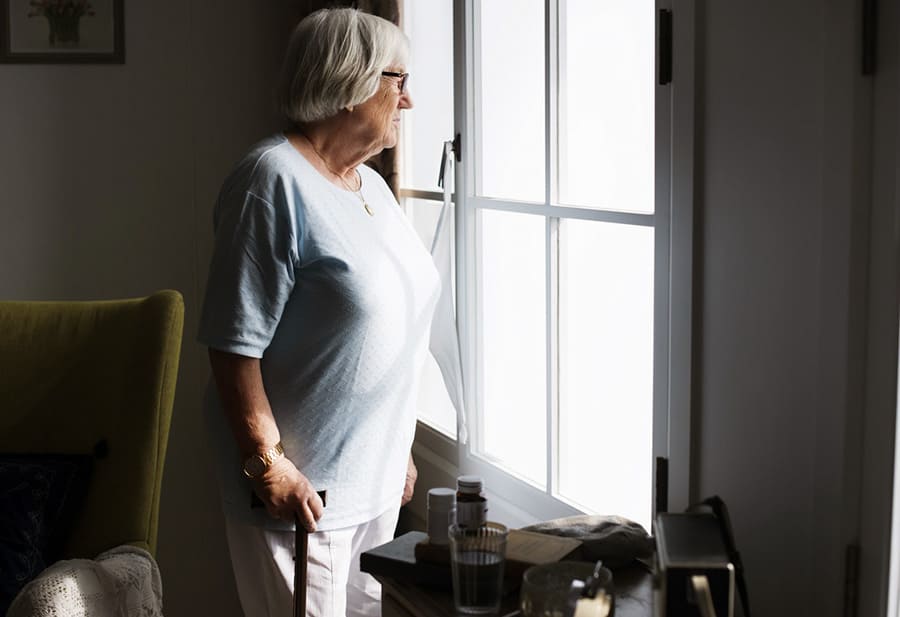People could face fines of £1,000 if they do not comply with new self-isolation rules

From 28 September, people across England will be required by law to self-isolate if they test positive or are contacted by NHS Test and Trace or they could face hefty fines.
Effective from today, people are now required by law to self-isolate if they test positive for coronavirus, the UK Government has confirmed, to ensure compliance and reduce the spread of COVID-19.
Fines for breaking these new rules start at £1,000 and increase up to £10,000 for repeat offenders.
Additionally, employers who force or allow staff to come to work when they should be self-isolating will also be liable for fines of up to £10,000, with the government emphasising that this kind of behaviour will not be tolerated.
People in England on lower incomes who cannot work from home and have lost income, as a result, will also be eligible for a new £500 Test and Trace Support Payment.
The government says that local authorities will be working quickly to set Test and Trace Support Payment schemes, which are expected to be in place by 12 October. Those who are told to self-isolate from today will receive backdated payments, if they are eligible, once the scheme is set up in their local authority.
Health and Social Care Secretary Matt Hancock said: “Anyone can catch coronavirus and anyone can spread it. We all have a crucial part to play in keeping the number of new infections down and protecting our loved ones.
“As cases rise it is imperative we take action, and we are introducing a legal duty to self-isolate when told to do so, with fines for breaches and a new £500 support payment for those on lower incomes who can’t work from home while they are self-isolating.
“These simple steps can make a huge difference to reduce the spread of the virus, but we will not hesitate to put in place further measures if cases continue to rise.”
As the infection is now spreading rapidly again and the UK has moved to coronavirus alert level 4, these new measures will help ensure compliance and reduce the spread of COVID-19, the government affirms.
If someone or another member of their household has symptoms of coronavirus, they should isolate immediately. If someone receives a positive test result, they are now required by law to self-isolate for the period ending 10 days after displaying symptoms or after the date of the test, if they did not have symptoms.
Other members of their household must self-isolate for the period ending 14 days after symptom onset, or after the date of the initial person’s positive test.
If someone is instructed to self-isolate by NHS Test and Trace, because they have had close contact with someone outside their household who has tested positive, they are legally required to self-isolate for the period notified by NHS Test and Trace. Both household and non-household contacts must self-isolate for the full period, regardless of whether they have symptoms and, if they develop symptoms and take a test, regardless of whether any test taken gives a negative result.
A number of steps will also be taken to make sure that people are complying with the rules. These include: NHS Test and Trace call handlers increasing contact with those self-isolating; using police resources to check compliance in highest incidence areas and in high-risk groups, based on local intelligence; investigating and prosecuting high-profile and egregious cases of non-compliance; and acting on instances where third parties have identified others who have tested positive, but are not self-isolating.
The UK Government has assured that the new legal obligation to self-isolate will afford specific exemptions including for those who need to escape from illness or harm during their isolation, and those that require care.
Additionally, recognising that self-isolation is one of the most powerful tools for controlling the transmission of COVID-19, the new Test and Trace Support payment of £500 will ensure that those on low incomes are able to self-isolate without worry about their finances.
Just under 4 million people who are in receipt of benefits in England will be eligible for this payment, which will be available to those who have been notified that they must self-isolate from today.
Individuals will receive this payment on top of any Statutory Sick Pay or benefits they receive. Currently individuals in employment who are self-isolating and cannot work from home are entitled to Statutory Sick Pay (SSP) if they earn more than £120 a week from a single employer. Depending on their circumstances, they might also be able to claim Universal Credit and/ or new style Employment and Support Allowance.
Councils will also have discretion to make payments to those who don’t receive the qualifying benefits, but are on a low income and could suffer financial hardship as a result of not being able to work.
https://thiis.co.uk/people-could-face-fines-of-1000-if-they-do-not-comply-with-new-self-isolation-rules/https://thiis.co.uk/wp-content/uploads/2019/11/accessible-housing-LGA.jpghttps://thiis.co.uk/wp-content/uploads/2019/11/accessible-housing-LGA-150x150.jpgCoronavirus NewsCOVID-19 Sector NewsGovernment & Local AuthoritiesNewsroomSector NewsCOVID-19,NHS Test and Trace,self-isolate,self-isolation,self-isolation fines,self-isolation law,Test and Trace Support PaymentFrom 28 September, people across England will be required by law to self-isolate if they test positive or are contacted by NHS Test and Trace or they could face hefty fines. Effective from today, people are now required by law to self-isolate if they test positive for coronavirus, the UK...Sarah SarsbySarah Sarsbysarah@thiis.co.ukEditorTHIIS Magazine

